Find Help
More Items From Ergsy search
-

Having an operation or procedure at the Royal Free London
Relevance: 100%
-
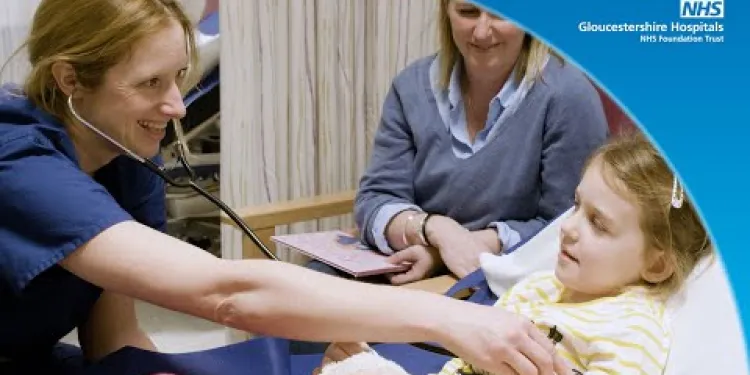
Having an operation at the Children’s Centre
Relevance: 67%
-
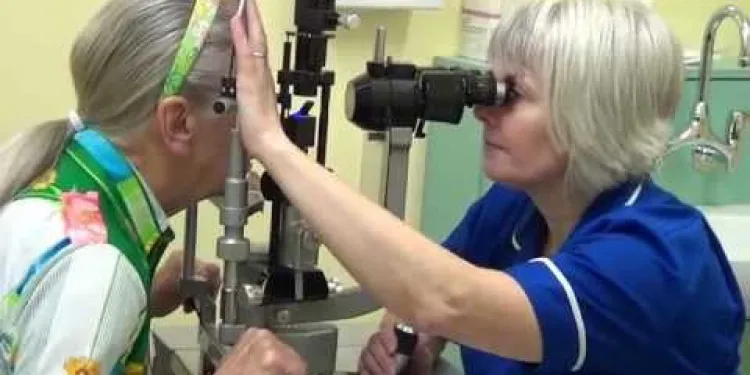
Your Cataract Operation
Relevance: 62%
-

Can I find operation waiting times in healthcare performance reports?
Relevance: 62%
-

Are there specific resources for urgent operation waiting times?
Relevance: 61%
-

How often are operation waiting times updated?
Relevance: 60%
-
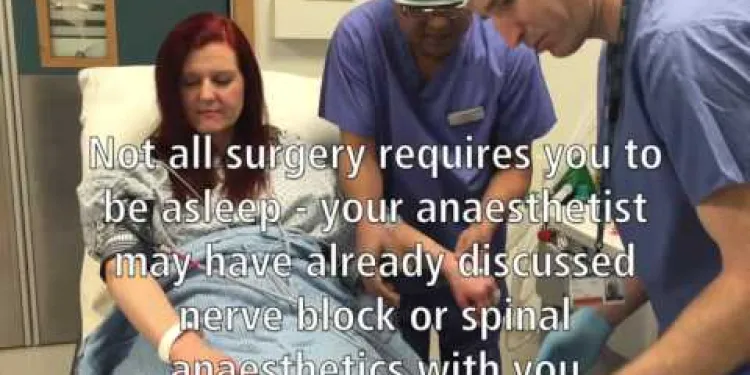
Your Operation at East Surrey Hospital
Relevance: 60%
-
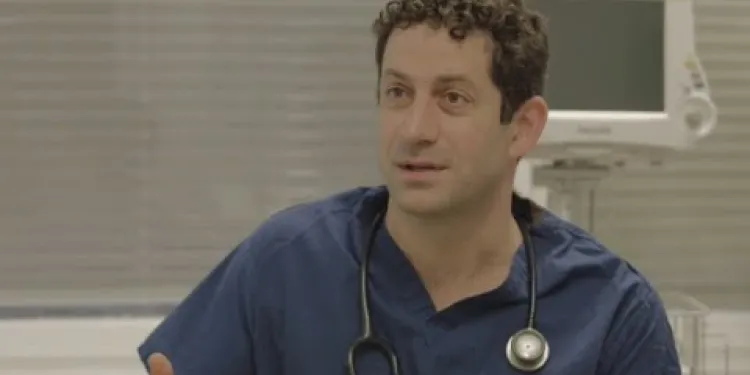
What to expect on the day of your operation
Relevance: 60%
-

Will I feel pain during the procedure?
Relevance: 59%
-
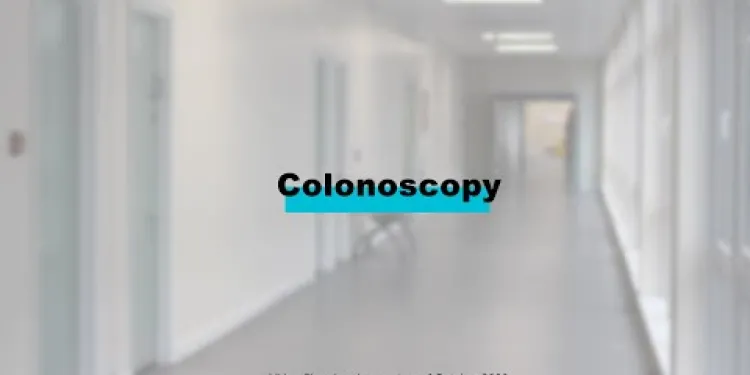
Endoscopy Procedures | Colonoscopy
Relevance: 59%
-

Does my doctor have access to operation waiting times?
Relevance: 59%
-

Can I get information on average waiting times for operations?
Relevance: 59%
-
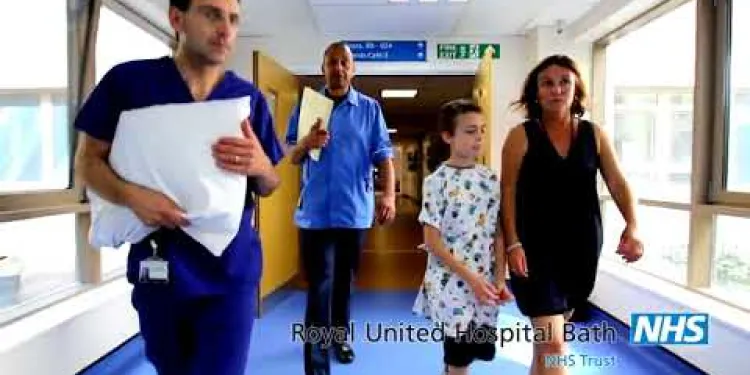
Having an anaesthetic for your operation - for over 8s
Relevance: 57%
-

Do private hospitals have shorter waiting times for operations?
Relevance: 56%
-

Are there apps available to check operation waiting times?
Relevance: 55%
-
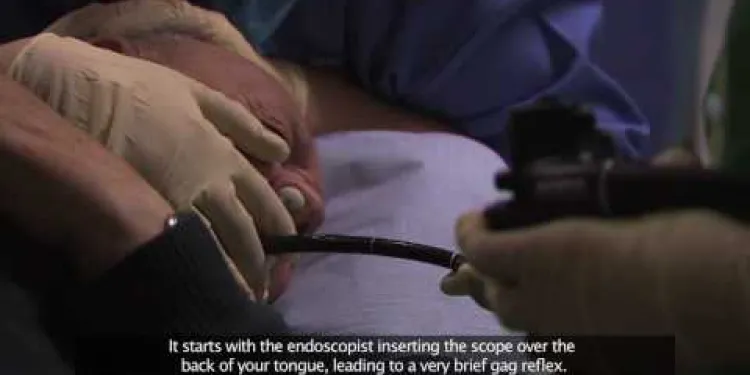
Bournemouth Digestive Diseases Centre: Gastroscopy Procedure (Subtitled)
Relevance: 54%
-
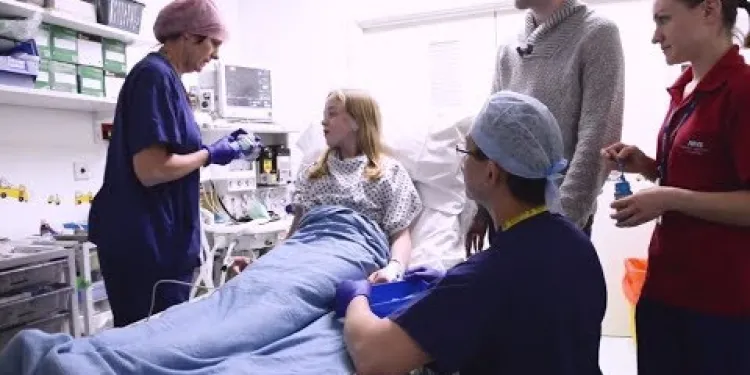
Having an operation in Oxford Children's Hospital with YiPpEe
Relevance: 54%
-

Is a C-section a common procedure in the UK?
Relevance: 53%
-

Having an operation
Relevance: 52%
-

Can a facelift be combined with other procedures?
Relevance: 52%
-

What are minimally invasive procedures for BPH?
Relevance: 52%
-

How can I find information on waiting times for an operation in my area?
Relevance: 50%
-
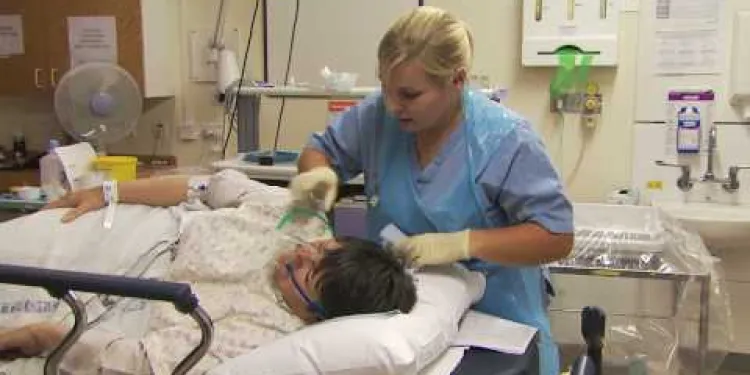
Bournemouth Digestive Diseases Centre: Endoscopy Procedure
Relevance: 50%
-
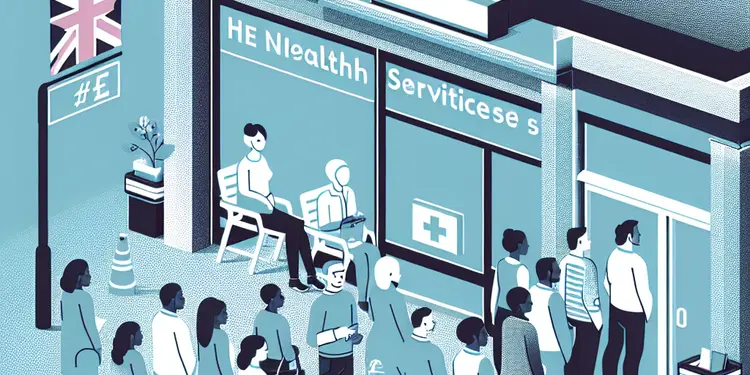
How can I find current waiting times for operations in my local hospital?
Relevance: 50%
-

Are waiting times for operations the same across all hospitals?
Relevance: 49%
-

What is the procedure for getting Turkey Teeth?
Relevance: 49%
-
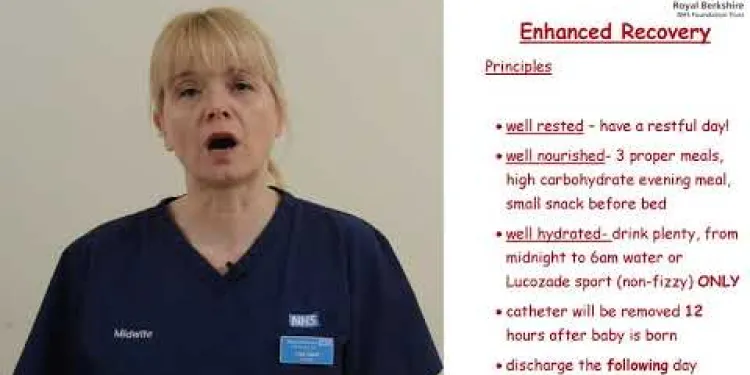
Pre operative Information for Planned Caesarean Birth
Relevance: 49%
-
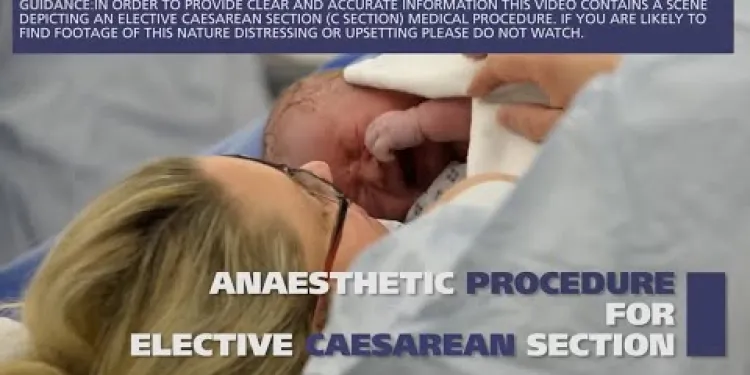
Anaesthetic procedure for elective caesarean section (C section)
Relevance: 48%
-

Can I appeal a long waiting time for my operation?
Relevance: 48%
-

How long does the Turkey Teeth procedure take?
Relevance: 47%
-

What is the most common surgical procedure for BPH?
Relevance: 47%
-

Thyroid eye disease. Squint surgery - The operation
Relevance: 47%
-

What is the procedure for receiving mail?
Relevance: 47%
-

Can I check the waiting time for a specific procedure online?
Relevance: 46%
-

What steps can a company take if shareholder disputes begin to impact business operations?
Relevance: 42%
-
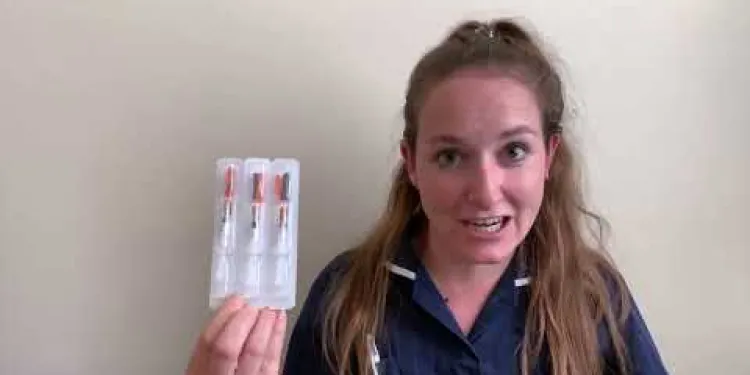
Bariatric Surgery - What to expect when you come to hospital for your operation.
Relevance: 42%
-

How can I maintain my Turkey Teeth after the procedure?
Relevance: 41%
-

Can flesh-eating disease occur after common surgical procedures?
Relevance: 40%
-

How long does it take to recover from a hip replacement operation?
Relevance: 33%
-

Can my partner be with me during the Caesarean section?
Relevance: 33%
Having an Operation or Procedure at the Royal Free London
Introduction to the Royal Free London
The Royal Free London NHS Foundation Trust is one of the United Kingdom's most esteemed hospitals, offering world-class medical care. Located in London, the hospital provides a wide range of surgical and medical procedures, ensuring patients receive top-notch care from experienced healthcare professionals.Pre-Operative Assessment
Before undergoing a surgical operation or medical procedure at the Royal Free London, patients will typically attend a pre-operative assessment. This comprehensive evaluation involves various tests and consultations to ensure that patients are fit for surgery. The assessment helps to identify any medical conditions that might affect the procedure and allows healthcare providers to tailor their care plans accordingly.The Operation or Procedure
On the day of the operation or procedure, patients are guided through each step by the hospital's skilled nursing team. The surgical team comprises leading surgeons, anaesthetists, and support staff who use state-of-the-art technology and techniques to perform a variety of procedures. The hospital's commitment to patient safety and quality care ensures that each operation is conducted with the utmost precision.Post-Operative Care
Following an operation at the Royal Free London, patients are monitored in dedicated recovery areas. The post-operative care team provides comprehensive support, including pain management, wound care, and physiotherapy if required. This phase is crucial for ensuring a smooth recovery and minimizing potential complications.Patient Support Services
The Royal Free London prides itself on offering a holistic approach to patient care, which includes various support services. Patients have access to dietitians, psychological support, and counselling services. The hospital also provides detailed information and education on recovery and long-term health management, allowing patients to take an active role in their recovery process.Conclusion
Choosing the Royal Free London for your operation or procedure means opting for a healthcare institution that prioritizes patient well-being from pre-operative assessment to post-operative care. The combination of experienced medical professionals, advanced technology, and comprehensive support services ensures that patients receive high-quality care throughout their medical journey.Having an Operation or Procedure at the Royal Free London
Introduction to the Royal Free London
The Royal Free London is a big hospital in the UK. It helps people get better with top-notch care. Located in London, this hospital offers many kinds of surgeries and medical treatments. The doctors and nurses are very skilled.Pre-Operative Assessment
Before having surgery or a procedure, you visit the hospital for a check-up. This helps doctors make sure you are ready for the operation. You might get some tests and meet with staff. They learn about your health to plan the best care for you.The Operation or Procedure
On the day of your surgery, the hospital team will help you. Nurses and doctors work together to take good care of you. They use the best tools and methods. The hospital makes sure each operation is safe and well-done.Post-Operative Care
After the operation, you will stay in areas made for recovery. Nurses and doctors will keep an eye on you. They help with pain and make sure your wound heals. You might have physiotherapy to help you get better. This care is important to help you recover well.Patient Support Services
The hospital cares about all your needs. They have people who can help with your diet, feelings, and counseling. You will get advice and learning materials on how to stay healthy after your surgery. This helps you take charge of your recovery.Conclusion
Choosing the Royal Free London means you will get great care from before your operation to after. The professional team, good technology, and helpful support make sure you’re taken care of every step of the way.Frequently Asked Questions
What should I do before my operation or procedure?
You will receive specific instructions prior to your operation, including dietary restrictions, medication guidelines, and necessary preparations. It’s crucial to follow these instructions to ensure the procedure goes smoothly.
Will I need to fast before my operation or procedure?
Yes, typically you will need to fast for a certain period before your operation. Your medical team will provide specific instructions on how long you need to fast.
Can I take my usual medications before the operation?
You should inform your medical team about all medications you are taking. They will advise which medications you should continue or pause before your operation.
What should I bring with me to the hospital?
Bring personal identification, any current medications, a list of allergies, comfortable clothing, toiletries, and any items suggested by your medical team.
How will I be informed about the time and date of my operation?
You will be contacted by the hospital, either by phone or mail, with the details of your operation including date, time, and where to go.
What should I expect on the day of the operation?
Arrive at the hospital at the designated time. You will check in, and the medical team will prepare you for surgery, which may include changing into a hospital gown and discussing anesthesia.
Will I be able to contact someone if I have questions before my operation?
Yes, the Royal Free London provides contact information in your pre-operation materials. You can call for any questions or clarifications.
How long will I have to wait before my procedure?
The waiting time can vary. Your medical team will provide an estimate based on the procedure and your specific circumstances.
What type of anesthesia will be used for my operation?
The type of anesthesia will depend on the procedure. Your anesthetist will discuss the options with you beforehand and decide on the safest type for your situation.
Can a family member or friend stay with me at the hospital?
Policies regarding visitors may vary and could be affected by current health guidelines. It’s best to check with the hospital for the most up-to-date visitor policies.
How will my pain be managed after the operation?
Your medical team will create a pain management plan, which may include medications and other therapies to ensure your comfort during recovery.
What should I do if I feel unwell before my operation?
If you feel unwell, contact the hospital immediately for advice. It may be necessary to reschedule your operation to ensure it is safe to proceed.
How will I receive information about aftercare and follow-up appointments?
You will be given detailed discharge instructions and information about follow-up appointments before you leave the hospital.
What should I do if I experience complications after my operation?
If you experience any complications, contact the hospital immediately. You will also be given emergency contact numbers to use if needed.
Will I receive a copy of my medical records after the procedure?
Yes, you can request a copy of your medical records from the hospital’s medical records department.
What do I need to do before my operation?
Getting ready for an operation is important. Here are some simple steps to help:
- Ask your doctor any questions you have so you can understand what will happen.
- Make a list of medicines you take. Tell your doctor about them.
- Follow any special instructions from your doctor, like what to eat or drink.
- Plan how you will get to the hospital and who will bring you home.
- Pack a small bag with things you need, like clothes and a toothbrush.
Remember, if you feel worried, you can talk to someone you trust. They can help make sure you feel ready.
Before your operation, you will get important instructions. These tell you what you can eat and drink, what medicine you can take, and how to get ready. It is very important to follow these instructions. This helps everything go well.
Do I need to stop eating and drinking before my operation?
Before your operation, your doctor might say you can't eat or drink for a while. This is called fasting.
If you have to fast, your doctor will tell you how long you can’t eat or drink for.
If you’re not sure what to do, ask your doctor or nurse. They can help explain it. You can also use pictures or write down the steps to help you remember.
Yes, you usually need to stop eating and drinking before your operation. Your doctor or nurse will tell you exactly when to stop eating.
Can I take my regular medicine before the surgery?
It is important to know if you can take your regular medicine before surgery. Here are some steps to help:
- Ask Your Doctor: Talk to your doctor or nurse. They can tell you what to do.
- Write It Down: Make a list of all the medicine you take. Show this list to your doctor.
- Use Visual Aids: Use pictures or charts to help you remember what the doctor says.
Tell your doctor about all the medicine you take. They will tell you which medicine to keep taking and which ones to stop before your operation.
What do I need to take to the hospital?
Take your ID, any medicines you take, a list of things you are allergic to, comfy clothes, things like a toothbrush and soap, and anything your doctor says to bring.
How will I know when my operation is?
Someone will tell you the day and time of your operation. They might call you on the phone or send you a letter. If you need help, ask someone to help you understand.
You can use a calendar to write down the date and time. This will help you remember when your operation is.
The hospital will get in touch with you. They might call you on the phone or send a letter in the mail.
They will tell you when your operation is. They will also tell you what time you need to be there and where to go.
If reading is hard, you can ask someone you trust to help you understand. You can also use a voice recorder to remember things.
What will happen on the day of the operation?
Here is what you can expect:
- You will go to the hospital.
- Doctors and nurses will look after you.
- You might have to wait in a room for a little while.
- A nurse will bring you to another room for the operation.
- Don't be scared. The doctors and nurses are there to help you.
- After the operation, you will rest and the doctors will check on you.
Remember to talk to the doctors or nurses if you feel nervous.
It might help to bring a book, a toy, or some music to make you feel calm while you wait.
Get to the hospital at the time they told you. You will say hello to the people at the front and they will get you ready for your operation. This might mean putting on a special hospital dress and talking about the sleepy medicine with the doctor.
Can I talk to someone if I have questions before my operation?
Yes, the Royal Free London gives you a phone number before your operation. You can call them if you have any questions.
How long do I wait before my procedure?
Here is a simple question about the time you need to wait before a procedure. This means how many days or weeks you have to wait until your procedure happens.
To help you understand and keep track of time, you can use a calendar or ask a friend or family member. They can help you count the days or mark them on the calendar until your procedure day arrives.
The time you wait might be different for each person. Your doctors will tell you how long it might take. They will think about what you need and your situation.
What kind of medicine will make me sleep during the operation?
- Anesthesia is a special medicine. It helps you not feel anything during an operation.
- Doctors choose the best type for you.
- Sometimes it makes you sleep. Other times, it just makes you numb.
- Ask your doctor to explain more if you want.
If you want more help:
- Bring a friend or family member to talk with the doctor too.
- Write down any questions you have.
- Use pictures or videos to understand better.
The kind of medicine to help you sleep during the operation depends on what the doctors are doing. The doctor who gives you this medicine will talk to you before the operation. They will choose the safest one for you.
Some good ways to help understand include asking a family member or friend to be with you when you talk to the doctor. You can also ask your doctor to use simple words or pictures to explain.
Can someone in my family or a friend stay with me at the hospital?
Yes, someone in your family or a friend can stay with you at the hospital. It's nice to have someone you know nearby.
If you need help understanding, ask the nurse. They can explain things.
Also, you can bring a small book or a toy to make you feel better.
Hospital rules on visitors can change, especially if people are getting sick. Check with the hospital to know the latest rules for visitors.
How will you help me with pain after my surgery?
After your surgery, you might feel some pain. It's normal, and doctors can help you feel better.
Here is what they might do:
- Give you medicine to stop the pain.
- Show you ways to relax, like deep breathing.
- Check how you feel often.
If the pain does not get better, tell your doctor or nurse right away.
It can also help to find a friend or family member to talk to.
Your doctors will make a plan to help with pain after your treatment. This plan might include medicine and other ways to help you feel better as you get well.
What should I do if I feel sick before my operation?
If you start to feel sick or not well before your operation, tell someone who is helping with your care. This could be your doctor or nurse. It's important to let them know as soon as you can.
Here are some tips that might help:
- Ask a family member or friend to help you talk to the doctor if you find it hard to explain how you feel.
- Write down your symptoms or feelings and show the list to your doctor.
- If you have medicine that you were told to take, ask if it's okay to take it when you are not feeling well.
- Use pictures or drawings to show where you feel pain or discomfort.
Remember, it is okay to ask questions and tell your care team how you feel. They are there to help you.
If you feel sick, call the hospital right away. They can tell you what to do. You might need to change your operation date to make sure it is safe.
How will I get information about care after treatment and follow-up visits?
When the doctor finishes your treatment, you will need to know what to do next. This is called "aftercare." You might also need to come back for more visits. These are called "follow-up appointments."
You will get the information in ways that are easy for you to understand. This might be:
- A letter sent to your home.
- A phone call from the doctor's office.
- A text message on your phone.
- An email.
Here are some ways to help you remember and understand the information:
- Ask someone you trust to help read or listen with you.
- Write down the information in a notebook.
- Use a calendar to mark the dates of your appointments.
- Set reminders on your phone.
Before you leave the hospital, the doctors and nurses will give you a paper. This paper will tell you how to take care of yourself at home. It will also tell you when to come back for your next doctor visit.
What should I do if I have problems after my surgery?
If you feel unwell after your surgery, tell someone. You can:
- Call your doctor.
- Tell a nurse.
- Ask a friend or family member for help.
Some things you might feel are:
- Pain that gets worse.
- Feeling sick.
- Your wound looks red or swollen.
If you have any of these problems, it is important to get help. You can:
- Use pictures to show where it hurts.
- Write down your symptoms if talking is hard.
- Ask someone to go with you to the doctor's visit.
Getting help quickly can make you feel better sooner.
If you have any problems, call the hospital right away. They will give you emergency phone numbers to use if you need them.
Will I get a copy of my medical records after the procedure?
Will the doctor give me my medical papers after the treatment?
If you are unsure, you can:
- Ask the nurse or doctor.
- Use a simple tool like a checklist.
Yes, you can ask for a copy of your medical papers from the hospital. Go to the place where they keep the medical papers.
Useful Links
This website offers general information and is not a substitute for professional advice.
Always seek guidance from qualified professionals.
If you have any medical concerns or need urgent help, contact a healthcare professional or emergency services immediately.
Some of this content was generated with AI assistance. We’ve done our best to keep it accurate, helpful, and human-friendly.
- Ergsy carfully checks the information in the videos we provide here.
- Videos shown by Youtube after a video has completed, have NOT been reviewed by ERGSY.
- To view, click the arrow in centre of video.
- Most of the videos you find here will have subtitles and/or closed captions available.
- You may need to turn these on, and choose your preferred language.
- Go to the video you'd like to watch.
- If closed captions (CC) are available, settings will be visible on the bottom right of the video player.
- To turn on Captions, click settings .
- To turn off Captions, click settings again.
More Items From Ergsy search
-

Having an operation or procedure at the Royal Free London
Relevance: 100%
-

Having an operation at the Children’s Centre
Relevance: 67%
-

Your Cataract Operation
Relevance: 62%
-

Can I find operation waiting times in healthcare performance reports?
Relevance: 62%
-

Are there specific resources for urgent operation waiting times?
Relevance: 61%
-

How often are operation waiting times updated?
Relevance: 60%
-

Your Operation at East Surrey Hospital
Relevance: 60%
-

What to expect on the day of your operation
Relevance: 60%
-

Will I feel pain during the procedure?
Relevance: 59%
-

Endoscopy Procedures | Colonoscopy
Relevance: 59%
-

Does my doctor have access to operation waiting times?
Relevance: 59%
-

Can I get information on average waiting times for operations?
Relevance: 59%
-

Having an anaesthetic for your operation - for over 8s
Relevance: 57%
-

Do private hospitals have shorter waiting times for operations?
Relevance: 56%
-

Are there apps available to check operation waiting times?
Relevance: 55%
-

Bournemouth Digestive Diseases Centre: Gastroscopy Procedure (Subtitled)
Relevance: 54%
-

Having an operation in Oxford Children's Hospital with YiPpEe
Relevance: 54%
-

Is a C-section a common procedure in the UK?
Relevance: 53%
-

Having an operation
Relevance: 52%
-

Can a facelift be combined with other procedures?
Relevance: 52%
-

What are minimally invasive procedures for BPH?
Relevance: 52%
-

How can I find information on waiting times for an operation in my area?
Relevance: 50%
-

Bournemouth Digestive Diseases Centre: Endoscopy Procedure
Relevance: 50%
-

How can I find current waiting times for operations in my local hospital?
Relevance: 50%
-

Are waiting times for operations the same across all hospitals?
Relevance: 49%
-

What is the procedure for getting Turkey Teeth?
Relevance: 49%
-

Pre operative Information for Planned Caesarean Birth
Relevance: 49%
-

Anaesthetic procedure for elective caesarean section (C section)
Relevance: 48%
-

Can I appeal a long waiting time for my operation?
Relevance: 48%
-

How long does the Turkey Teeth procedure take?
Relevance: 47%
-

What is the most common surgical procedure for BPH?
Relevance: 47%
-

Thyroid eye disease. Squint surgery - The operation
Relevance: 47%
-

What is the procedure for receiving mail?
Relevance: 47%
-

Can I check the waiting time for a specific procedure online?
Relevance: 46%
-

What steps can a company take if shareholder disputes begin to impact business operations?
Relevance: 42%
-

Bariatric Surgery - What to expect when you come to hospital for your operation.
Relevance: 42%
-

How can I maintain my Turkey Teeth after the procedure?
Relevance: 41%
-

Can flesh-eating disease occur after common surgical procedures?
Relevance: 40%
-

How long does it take to recover from a hip replacement operation?
Relevance: 33%
-

Can my partner be with me during the Caesarean section?
Relevance: 33%


